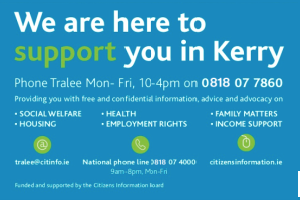 With growing numbers of motorists now recording their journeys with dash cams, Alex Hoffman of Pierse McCarthy Lucey Solicitors gives the legal low down on this popular in-car technology…
With growing numbers of motorists now recording their journeys with dash cams, Alex Hoffman of Pierse McCarthy Lucey Solicitors gives the legal low down on this popular in-car technology…
In a study conducted by Aviva in June 2018, it was revealed that close to eleven million or 27% of all UK motorists use dash cams (in-car cameras that record the road in front of you), showing an increase of 10% since their previous study in April 2017.
The reasons for their popularity appear to be driven by two main factors; road safety and insurance.
Over a third (36%) of drivers surveyed said that they felt safer on the road when using a dash cam, with close to half of drivers (47%) saying they make accountability for accidents more clear-cut.
For motorists unlucky enough to find themselves involved in an accident, the availability of dash cam footage of the incident, can help to speed up the claims process and help to eliminate fraudulent claims. While there is no data for dash cam usage in Ireland it is unlikely to be too dissimilar.
Now motorists are starting to see the value of dash cams, with an increasing number of insurers now accepting footage when reviewing claims. Some companies have even begun to offer discounts to those policyholders that have a fully-functioning dash cam installed in their vehicle.
Axa Ireland was the first insurer out of the blocks in November of last year to offer motorists a 10% discount on their cover if they fit dash cams to their cars.
They even went so far as to partner with camera company, Nextbase, who in turn offered to match the 10% on any of its dash cams bought through selected retailers. FBD have since followed suit by offering a €50 discount to motorists.
The hope from insurers is that the use of the technology will make it easier to establish liability in the event of a crash.
While the benefits would seem obvious, motorists need to be conscious of the serious data protection issues involved and it is important that drivers who install dash cams understand their obligations under data protection legislation.
Mindful of their growing popularity, the Data Protection Commissioner has issued guidance for drivers on the use of dash cams, pointing out that those who collect and process personal information of individuals (including images and voice recordings of people) are subject to EU data protection rules (GDPR).
Some of the key points to consider are:
• Personal data must be processed in a transparent manner. In that regard the operator of a dash cam should have a clearly visible sign or sticker on or inside their vehicle to indicate that filming/recording is taking place.
A policy sheet with your contact details, the basis on which you are collecting the images and audio, the purposes for which the data is being used and how long you will retain it for should be prepared by you and made available to anyone who asks.
While this is clearly relevant for those operating taxis and public service vehicles, the legislation applies in the same way to non-professional drivers. Alternatively, you may provide the information verbally.
In the event of an accident, you should advise the other party that you have recorded footage of the accident.
• Personal data should only be retained for as long as required and for the purpose that it was obtained. You will need to think about how long you keep hold of footage. Footage of an accident may be required for a claim or investigation and can be retained for that purpose. Other footage should not be retained indefinitely and should be routinely deleted.
• Personal data must be kept securely. Be aware of, and limit, who has access to your camera and any external storage devices.
• People have a right to access their data. If a person is aware that you have a recording of them, they have a right to access that data. You should be able to provide a copy of their data to anyone who requests it, within one month. In providing copies, you should also be mindful that recordings may contain data of other people, in which case redaction may be required.
Publication of Footage
Extreme care needs to be taken where footage is published or shared on social media platforms, as this will constitute further processing of the data and risks the infringement of privacy rights of individuals who be might identifiable in the footage.
Such publication may also impact on the investigation of incidents by the Gardai and could potentially compromise possible prosecutions.
The Data Protection Commissioner handles complaints from individuals who consider that their data protection rights may have been infringed and has the power to impose significant fines where breaches are found to have occurred.
Such complaints can include instances of a driver refusing to give access to images or footage when requested, or refusing to give information about why they are collecting the data.
Sharing Dash Cam Footage
Hardly a day goes by that we don’t hear of some incident on the news, with a Gardai appeal for witnesses or anyone with dash cam footage of the incident to come forward.
Section 41 of the Data Protection Act 2018 specifically permits the sharing of personal data, which would include dash cam footage for the purposes of preventing, detecting, investigating or prosecuting criminal offences.
The Gardai may therefore request a copy of any recorded footage, although they should be in a position to demonstrate that the footage is indeed necessary for the investigation or prosecution of a criminal offence. Where possible, a request for such footage should be obtained in writing.
You may wish to submit footage to an insurance company in the event of an accident. Indeed your contract of insurance may require you to provide such footage to your insurance company on request or to upload it to their website.
In any case they will in turn become a data controller of that footage once it is handed over and must ensure that the data is handled and processed in compliance with data protection legislation.
• The material contained in this article is for general information purposes only and does not constitute legal or other professional advice. No liability whatsoever is accepted by Pierse McCarthy Lucey for any action taken in reliance on the information contained in this article.













If you are involved a accident & the other driver see that it is recorded by them do they have to give you a copy if it looks like they at fault but I don’t have any recording what if they delete it IN the mean time saying the dash cam was not on